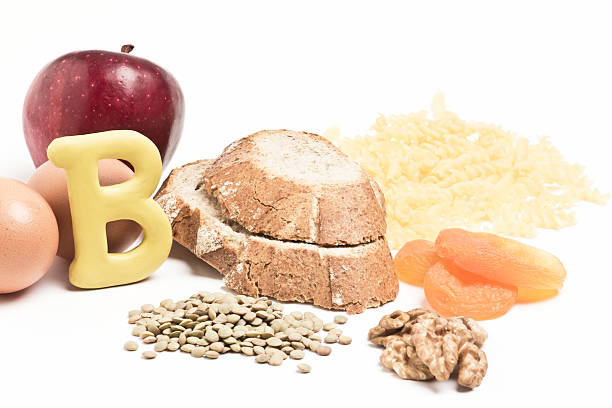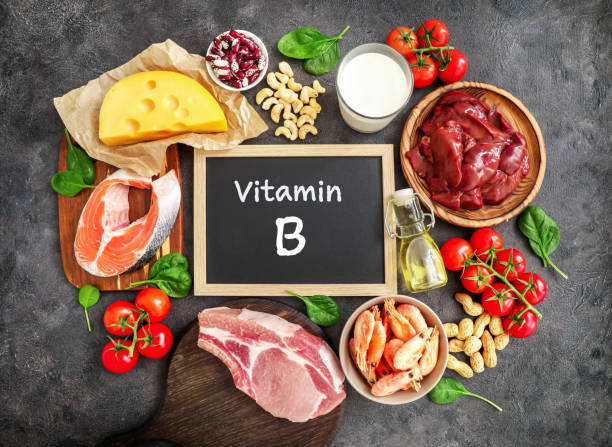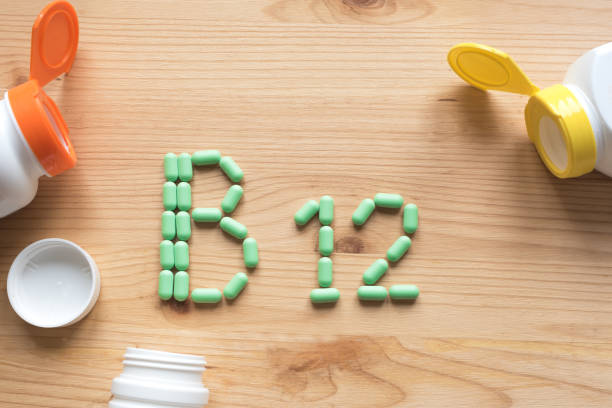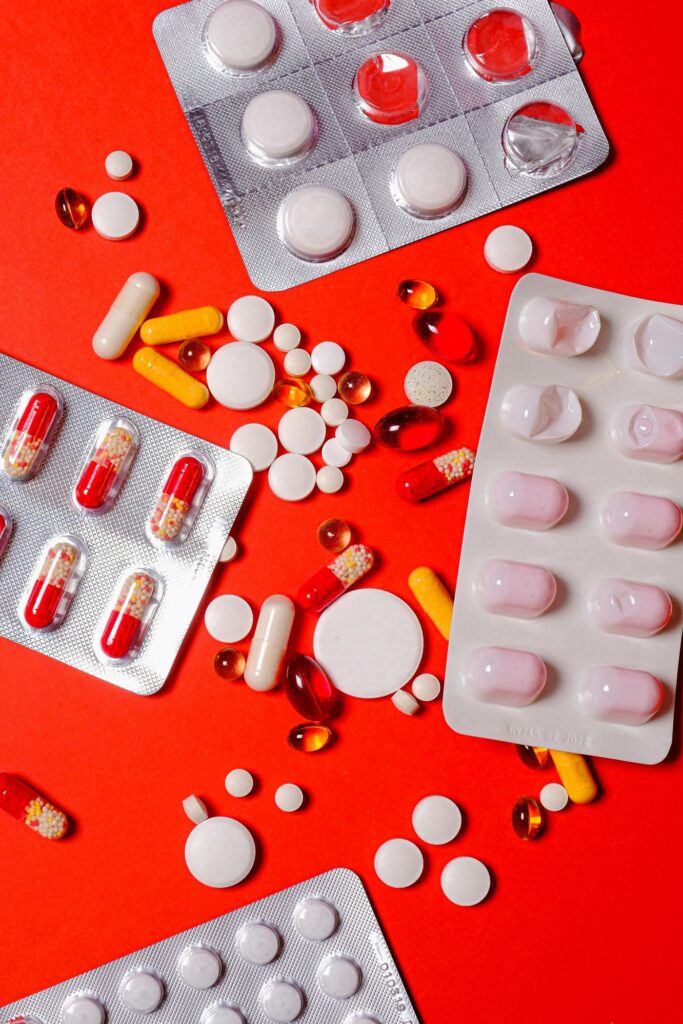Supplements and Herbs
Can Vitamin B Really Lower Cholesterol Levels
Are you seeking for a natural method to lower your cholesterol? Look no further than Vitamin B. This crucial ingredient has been demonstrated to improve cholesterol levels, making it a popular choice for individuals looking for a drug-free alternative. But does vitamin B actually decrease cholesterol? In this article, we will examine the study and scientific data to discover the truth.
Understanding Cholesterol and its Impact on Health
Cholesterol is a waxy molecule found in the bloodstream. While cholesterol is necessary for many basic activities, including hormone production and cell structure, high levels can raise your risk of heart disease. Cholesterol is classified into two types: low-density lipoprotein (LDL), sometimes known as “bad” cholesterol, and high-density lipoprotein (HDL), or “good” cholesterol. High LDL cholesterol levels can cause plaque buildup in your arteries, increasing your risk of heart attack and stroke.
What is Vitamin B and its Role in the Body?
Vitamin B is a collection of eight water-soluble vitamins that play an important part in cell metabolism. These vitamins interact together to support a variety of biological activities, including energy production and cognitive functioning. Each B vitamin provides distinct benefits and functions. Vitamin B3, commonly known as niacin, helps convert food into energy and promotes healthy skin. Vitamin B6 is involved in neurotransmitter production, which helps to regulate mood and brain function.

The Relationship Between Vitamin B and Cholesterol Levels
Recent research indicates that certain B vitamins, particularly vitamin B3 (niacin) and vitamin B6, can help decrease LDL cholesterol and triglycerides. Niacin has been proven to raise HDL cholesterol (the “good” cholesterol), while decreasing LDL cholesterol and triglycerides. Vitamin B6, on the other hand, aids in the metabolism of cholesterol, breaking it down and eliminating it from the body.
However, it is crucial to note that vitamin B’s influence on cholesterol levels can differ from person to person. Some people may notice a large reduction in cholesterol levels, while others may see very minor reductions. Furthermore, the success of vitamin B in decreasing cholesterol is dependent on a number of factors, including dosage, duration of supplementation, and an individual’s general diet and lifestyle. As a result, it is always suggested to contact with a healthcare practitioner before beginning any new supplementation routine.
Research on the Effects of Vitamin B on Cholesterol
Numerous research have been undertaken to determine the impact of vitamin B on cholesterol levels. A meta-analysis of 25 randomized controlled studies published in the American Journal of Clinical Nutrition indicated that niacin supplementation significantly boosted HDL cholesterol levels while decreasing LDL cholesterol and triglycerides. The study also emphasized the significance of personalized treatment programs and thorough monitoring of liver function, as high niacin doses can cause negative effects.
Another study, published in the Journal of the American Medical Association (JAMA), examined the effects of niacin, statins, and a combination of the two on cardiovascular events. The study discovered that niacin, when used with statins, lowered LDL cholesterol levels while increasing HDL cholesterol levels. However, the study found an increased risk of side effects with the combination medication, underlining the importance of careful thought and medical supervision.

Foods Rich in Vitamin B that Can Help Lower Cholesterol
While vitamin B pills might be advantageous, keep in mind that whole meals are the finest source of nutrients. Incorporating vitamin B-rich foods into your diet will help decrease cholesterol while also providing numerous other health advantages. Here are some examples of vitamin B-rich foods:
- Lean meats: Chicken, turkey, and lean cuts of beef are excellent sources of vitamin B6.
- Fish: Fatty fish, such as salmon and mackerel, are not only rich in omega-3 fatty acids but also contain vitamin B12.
- Eggs: Eggs are a versatile and nutrient-dense food that contains various B vitamins, including vitamin B12.
- Dairy products: Milk, cheese, and yogurt are good sources of vitamin B2 (riboflavin).
- Legumes: Lentils, chickpeas, and black beans are not only high in fiber but also contain vitamin B1 (thiamine) and vitamin B6.
- Leafy green vegetables: Spinach, kale, and broccoli are packed with essential vitamins and minerals, including vitamin B9 (folate).
Incorporating these foods into your diet can be a simple and effective way to increase your vitamin B intake and support healthy cholesterol levels.
Recommended Daily Intake of Vitamin B for Cholesterol Management
The recommended daily intake of vitamin B varies depending on the specific B vitamin and age group. Here are the recommended daily intakes for adults:
- Vitamin B3 (Niacin): The recommended daily intake for niacin is 14-16 mg for adult women and 16-18 mg for adult men.
- Vitamin B6: The recommended daily intake for vitamin B6 is 1.3 mg for adult women and 1.7 mg for adult men.
It’s important to note that these recommendations may vary for individuals with specific health conditions or those on certain medications. Consulting with a healthcare professional can help determine the appropriate dosage for your specific needs.

Supplement Options for Increasing Vitamin B Intake
If you struggle to reach your vitamin B requirements through diet alone, supplements can be a helpful choice. Vitamin B supplements are readily available and come in a variety of formats, including capsules, pills, and liquid formulations. It is critical to choose a trustworthy brand and adhere to the stated dosage directions.
When considering vitamin B supplements for cholesterol management, it is critical to speak with a healthcare expert. They may examine your specific needs, look for potential interactions with any medications you may be taking, and offer specialized advice.
Lifestyle Changes to Support Vitamin B and Cholesterol Management
In addition to including vitamin B-rich foods and supplements in your diet, some lifestyle adjustments can help you maintain healthy cholesterol levels. Here are a few tips:
- Eat a balanced diet: Focus on consuming a variety of nutrient-dense foods, including fruits, vegetables, whole grains, lean proteins, and healthy fats.
- Exercise regularly: Engaging in regular physical activity can help raise HDL cholesterol levels and improve overall cardiovascular health.
- Maintain a healthy weight: Losing excess weight can positively impact cholesterol levels and reduce the risk of heart disease.
- Limit saturated and trans fats: Reduce your intake of foods high in saturated and trans fats, such as red meat, full-fat dairy products, and fried foods.
- Quit smoking: Smoking damages blood vessels and lowers HDL cholesterol levels. Quitting smoking can have a significant impact on your overall cardiovascular health.
Consultation with a Healthcare Professional for Personalized Advice
While vitamin B may help lower cholesterol levels, it’s important to note that everyone’s health demands are different. Consultation with a healthcare professional is required for personalized advice and guidance. They can evaluate your cholesterol levels, examine your general health, and propose the best treatment option for you. Your healthcare provider can also track your progress and make changes as needed.
Conclusion
To summarize, vitamin B, specifically niacin (vitamin B3) and vitamin B6, has showed promise in decreasing LDL cholesterol and triglyceride levels. However, success varies from person to person, so talk with a healthcare expert before beginning any new supplementation routine.
Consuming vitamin B-rich foods such as lean meats, fish, eggs, dairy products, legumes, and leafy green vegetables can give a variety of health benefits, including support for good cholesterol levels. If you are unable to achieve your daily vitamin B requirements through diet alone, supplements can be a useful tool; nevertheless, it is critical to contact with a healthcare practitioner to identify the proper amount for your unique needs.
Remember that lifestyle adjustments like eating a balanced diet, exercising regularly, staying at a healthy weight, and quitting smoking can all help with cholesterol management. You may reduce your cholesterol levels and enhance your overall cardiovascular health by combining these strategies with tailored assistance from a healthcare expert.
Trusted Health, Wellness, and Medical advice for your well-being


